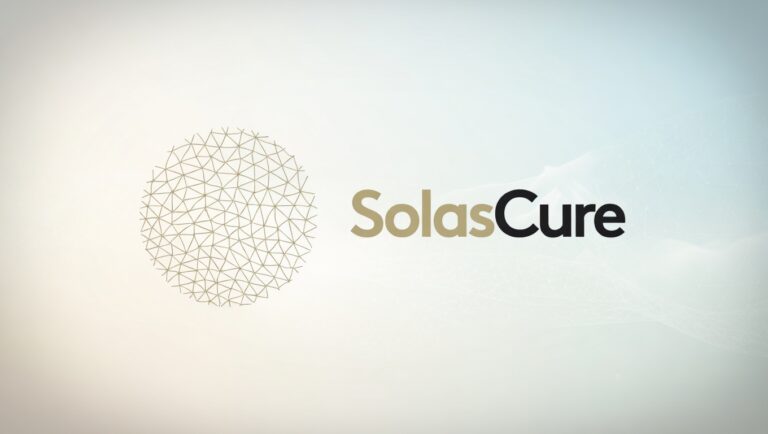
Vir Biotechnology, Inc. (NASDAQ:VIR) today revealed positive results from the SOLSTICE Phase 2 clinical trial evaluating its investigational combination of tobevibart and elebsiran for the treatment of chronic hepatitis delta (CHD). The trial, which included both monotherapy and combination therapy arms, demonstrated significant virologic response, with 100% of participants in the combination arms achieving virologic suppression, including a 41% rate of hepatitis delta virus (HDV) RNA suppression below the lower limit of quantification (LLOQ) at Week 24, rising to 64% at Week 36.
These promising findings were presented at the American Association for the Study of Liver Diseases (AASLD) The Liver Meeting® in San Diego, CA. Based on the SOLSTICE data and following recent discussions with the FDA, Vir Biotechnology plans to initiate the Phase 3 registrational ECLIPSE program in the first half of 2025 to further evaluate the combination therapy for CHD.
Key Results from the Phase 2 SOLSTICE Trial
The SOLSTICE trial included participants randomized to receive either tobevibart monotherapy or a combination of tobevibart and elebsiran. The primary endpoint was to assess virologic suppression at Week 24, with extended monitoring at Weeks 36, 48, and 60.
- Virologic Suppression: At Week 24, 100% of participants in the combination arms achieved a ≥2 log10 decrease in HDV RNA or had RNA below the limit of detection (LOD), with sustained responses observed at Week 36 and Week 60.
- HDV RNA TND: By Week 36, 64% of participants in the combination group achieved undetectable HDV RNA (TND), with this rate rising to 80% at Week 60 in a subset of patients.
- Hepatitis B Surface Antigen (HBsAg) Suppression: 90% of participants in the combination arms achieved HBsAg levels <10 IU/mL at Week 24, with sustained responses at later time points.
- ALT Normalization: 47% of participants in the combination de novo cohort and 56% in the rollover cohort experienced normalization of ALT by Week 24, a marker of liver inflammation.
The study also demonstrated promising composite endpoints, including HDV RNA TND and ALT normalization, with increasing rates observed at later time points.
Safety Profile
The safety of the tobevibart-elebsiran combination was consistent with previous studies. Treatment-emergent adverse events (TEAEs) were mild to moderate, with influenza-like illness being the most common. There were no significant safety concerns, such as ALT flares or severe adverse events, and no study-related discontinuations.
Statement from Key Opinion Leaders
Dr. Tarik Asselah, Professor of Hepatology at the Hôpital Beaujon, Paris, commented, “The SOLSTICE Phase 2 data suggest that tobevibart and elebsiran could significantly improve outcomes for patients with hepatitis delta, an area with no approved treatments. The combination’s impressive rates of virologic suppression and sustained response offer hope for patients who desperately need new treatment options.”
Phase 3 ECLIPSE Program
Following positive discussions with the FDA, Vir Biotechnology is set to launch the Phase 3 ECLIPSE program in the first half of 2025. The ECLIPSE trials will assess the combination of tobevibart and elebsiran in CHD patients through three randomized, controlled studies:
- ECLIPSE 1: Comparing tobevibart and elebsiran to deferred treatment in regions where bulevirtide is unavailable or limited.
- ECLIPSE 2: Evaluating the combination in patients who have not achieved viral suppression with bulevirtide.
- ECLIPSE 3: A Phase 2b trial comparing tobevibart and elebsiran with bulevirtide in treatment-naive patients.
The FDA has granted Fast Track designation to the tobevibart-elebsiran combination for the treatment of CHD, expediting the development and review process for this serious and unmet medical condition.
Orphan Drug Designation
In addition to the Fast Track designation, the European Medicines Agency (EMA) Committee for Orphan Medicinal Products (COMP) has issued a positive opinion for orphan drug designation for tobevibart and elebsiran in the treatment of CHD, further supporting the development of this therapy for patients with this life-threatening disease.
About Chronic Hepatitis Delta (CHD)
CHD is a severe, chronic liver disease caused by HDV, the most aggressive form of chronic viral hepatitis. People with CHD are at high risk of developing cirrhosis and liver failure, and there are currently no approved treatments in the U.S. The goal of treatment is to suppress the virus, and combination therapies like tobevibart and elebsiran offer the potential to target the virus through multiple mechanisms.
About Vir Biotechnology
Vir Biotechnology, Inc. is a clinical-stage immunology company focused on developing treatments for serious infectious diseases. The company leverages its expertise in immunology, infectious disease, and drug development to deliver innovative therapies to patients.




